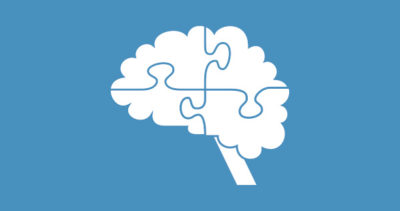
Are you strong enough to overcome stress?
In my previous blog post on the causes and consequences of stress I wrote that, if not dealt with effectively, prolonged periods of emotional and physical pressure could result in burnout. On the other hand, some individuals activate their resilience mechanisms and survive the turmoil unshaken, or even bounce back stronger. They learn how to overcome stress.
How is this all possible?
Understanding Resilience
At first, let’s define what does this concept actually mean. Being resilient equals to being capable of identifying distressing events and situations, and dealing with them effectively. One can “bounce back from tough times, or even to triumph in the face of adversity” claims Local Government Association of London.
Drawing on previous research neurologists Adriana Feder and her colleagues agree that resilience is our ability to respond positively to drawbacks and traumas in life. But their work also teaches us that the level of personal resilience is linked to the genetic composition and workings of our brain.
In fact, certain “neural circuits” are partially responsible for all the facets of resilience – our responses to uneasy situations, our use of positive emotions, our ability to be proud of our achievements, and even our capacity to draw on positive energy of encouraging companions, colleagues, and friends.
It is not only genes, but also the social environments that are influential in our capacity to be resilient, claim Lupien and his colleagues Nature Reviews Neuroscience. The support received from our primary carers and parents when growing up, positive school environments, even supportive local communities in the early years of life, all of these factors strongly impact on the “physiological and psychological mechanisms” that are activated when we are faced with stressful situations in adulthood. Therefore having a strong and supportive social network is largely influential in resilience levels.
But apart from seeking social interactions, or defaulting to our genetic predisposition, what else can we do to increase our ability to exhibit resilience and thus be effectively equipped to ‘cope with stress’?
How to Increase your Resilience Capacity
One of the Europe`s leading business psychology consultancies Nicholson McBride has been actively involved in improving organisational performance by offering people based solutions since 1980s. Being the experts they developed the Resilience Quotient Questionnaire that can help to identify your current behaviour and reactions to setbacks. Then to work on your capacity of resilience five strategies are being put forward. Based on a research overview of Dr Nicholson and Jane Clark by Local Government Association of London and Glynis Horning I would like to recommend that you take the following building blocks of resilience seriously:
1. Work on your optimism levels.

Attribution: Pixabay-geralt, CC0 Public Domain
Drawing on positive psychology, feeling and believing that your day will turn out well, despite missing the train in the morning, and forgetting your wallet at home, can have a significant impact on the quality of your physical and mental wellbeing. It is also Dr.Seligman, the father of positive psychology, that cannot stress enough the need to build up resilience levels from young age by teaching our children optimistic thinking.
2. Optimism however does not mean closing your eyes in front of problems or even dwelling on them.

Instead anticipate them, identify them, and seek out solutions. Have strategies for addressing them, explore all the possibilities.
3. Take responsibility for your own actions. Resilient people have what is called an ‘internal locus of control’ – they see themselves as responsible for influencing actions, happenings, events around them, instead of ‘blaming others’. Don`t waste your time or energy on things you have no control over. Believe in yourself. Do not sink in self-doubt.
4. Be responsive to change. Reframe the way you see it. Look for challenges and opportunities for personal growth instead of obstacles and failures. Accept a little help along the way too, there is a lot that you can learn from others.
5. Learn to identify your own stress signals so you can learn how to avoid stress way before you burn out. Take the first steps of how to manage stress by looking after your body and mind.

In the search for the stress management techniques one can find endless recommendations on mindfulness exercises, yoga, relaxation. Go for walks in the fresh air, or have a hot bath at the end of the busy day. All of these are indeed effective means of how to cope with stress. I will leave you with one more suggestion.
Did you know that by pursuing your favourite hobbies, you can reach not only a better life, but a happier life? This is because by becoming immersed in your preferred occupation, you will get into the state of ‘flow’ coined by Mihaly Csikszentmihalyi. His research into happiness started with asking artists, and creative people what lead them to spend hours either dancing, painting, playing a musical instrument and so on. He found out that simply by entering the conscious state of ‘flow’ you will become completely captivated by the activity, especially if it`s to do with creativity. This is where you can find “genuine satisfaction”. Therefore, in accordance with his teaching, choose your favourite hobbies – and if you can day to day activities too – according to this principle, so that you can “forget yourself” and enjoy your life.
Ever wonder why you keep repeating the same behaviours?






